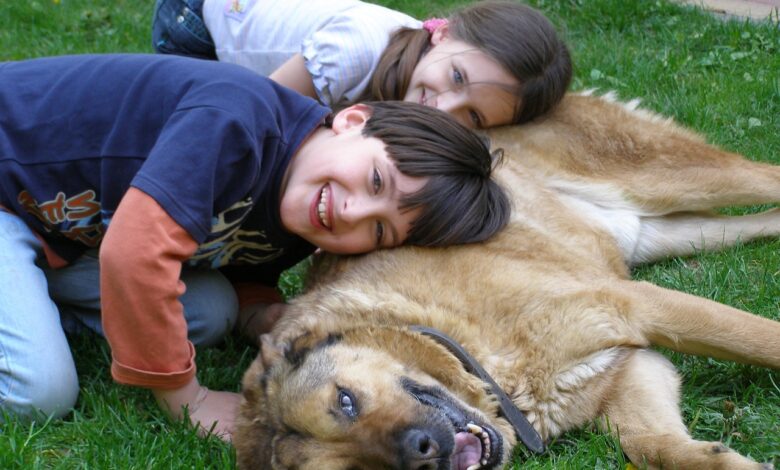Unlocking Harmony The Ultimate Guide to Socializing a Dog

Introduction
Socializing a Dog!! Welcome to our guide on effective ways to socialize dogs and ensure their compatibility with you and other pets. Whether you are a new dog owner or have had dogs for years, it is important to understand the significance of socialization and how it can greatly benefit your furry friend in various situations. In this article, we will explore different strategies and techniques that can help you socialize your dog, making them more comfortable and well-behaved around people and other animals.
and don’t forget Socializing a dog is like planting a garden. The more experiences you expose them to early on, from people to pups, the more confident and well-adjusted they’ll bloom to be.
The Importance of Socializing a Dog
Socialization plays a pivotal role in the overall development and well-being of dogs. It helps them build confidence, reduces anxiety, and enhances their ability to interact positively with humans, animals, and the environment. Properly socialized dogs are less likely to develop behavioral problems such as fear-based aggression, separation anxiety, and destructive behavior.
Furthermore, socialization enables dogs to adapt to new experiences, environments, and situations without feeling overwhelmed or stressed. This is especially important if you have other pets or plan to introduce your dog to new friends, family members, or even take them to public places such as parks or cafes.
Early Socialization
When it comes to socializing dogs, it is crucial to start the process as early as possible. The critical socialization period for puppies is between three to fourteen weeks of age, although socialization efforts should continue throughout their lives.
During this period, puppies are more receptive to new experiences, making it easier for them to adapt to various stimuli. It is important to expose them to a wide range of sights, sounds, smells, textures, and situations in a positive and controlled manner.
Introduce your puppy to different people, including children, adults, and individuals wearing hats, sunglasses, or uniforms. This will help them become comfortable around different types of people. Similarly, introduce them to friendly and well-behaved dogs of various breeds and sizes to help them learn appropriate social cues.
Exposing your puppy to different environments such as parks, streets, and crowded areas also helps them become more confident and adaptable. However, remember to prioritize their safety and avoid overwhelming or stressful situations.
Positive Reinforcement
Positive reinforcement is a powerful tool when it comes to socializing dogs. By rewarding desirable behavior, you can encourage your dog to repeat those actions in the future. This technique is based on the principle that dogs are more likely to learn and retain information when positive outcomes are associated with specific behaviors.
When socializing your dog, make sure to use positive reinforcement techniques such as treats, praise, and playtime. For example, if your dog behaves calmly and politely when meeting a new person or animal, reward them with a treat and praise. This will help them associate positive feelings with social interactions and encourage them to continue displaying appropriate behavior.
It is important to be consistent with your rewards and provide them immediately after the desired behavior. This will help your dog understand which actions are being rewarded, making the learning process more effective.
Furever Family: Top Dog Breeds for a Lifetime of Love and Loyaltyhttps://unikesh.com/furever-family-top-dog-breeds-for-a-lifetime-of-love-and-loyalty/
Gradual Exposure
When introducing your dog to new environments, people, or animals, it is essential to do so gradually. Overwhelming your dog with too many stimuli at once can lead to fear, anxiety, or even aggression. Take things one step at a time and ensure each experience is positive and manageable for your dog.
For example, if you want to socialize your dog with other pets, start by organizing controlled and supervised playdates with a calm and friendly dog. Allow the dogs to sniff and interact with each other, rewarding them for positive behavior. As they become more comfortable, you can gradually introduce them to new dogs of different sizes and energy levels.
Similarly, when exposing your dog to new environments, start with quieter and less crowded areas before gradually venturing into busier places. This will help your dog build confidence and feel more at ease in various settings.
Enroll in Training Classes
Training classes not only provide valuable obedience training but also offer an excellent opportunity for your dog to socialize with other dogs and people in a controlled environment. Look for reputable training schools or trainers who focus on positive reinforcement techniques.
These classes allow your dog to interact with other dogs of different breeds, sizes, and temperaments. They also allow you to learn effective training methods and gain a better understanding of your dog’s behavior and body language.
While attending training classes, make sure to reinforce positive behavior and provide your dog with plenty of praise and rewards. This will further enhance their socialization skills and strengthen your bond.
Expose Your Dog to Various Situations
A well-socialized dog is comfortable and confident in a wide range of situations. Expose your dog to different scenarios, including car rides, visits to the veterinarian, and encounters with people of diverse ages and backgrounds.
Ensure these experiences are positive by providing treats, praise, and reassurance. Gradually increase the level of difficulty as your dog becomes more comfortable and responsive.
Patience and Consistency
Socializing a dog is a journey of patience, time, and consistency. Remember, each dog is unique and may need a tailored approach. Some pups are naturally social butterflies, while others might be shy or anxious.
Regardless of your dog’s personality, it is essential to remain patient and provide them with a safe and supportive environment. Avoid forcing them into uncomfortable situations and respect their boundaries.
Consistency is also key when it comes to socializing dogs. Set aside dedicated time each day for socialization exercises and be consistent in reinforcing positive behavior. The more consistent you are, the faster your dog will learn and feel comfortable in various social situations.
Conclusion
Socializing a dog is a vital aspect of responsible dog ownership. By following the tips and strategies mentioned in this article, you can ensure that your dog is well-adjusted, confident, and compatible with you and other pets. Remember to start the socialization process early, use positive reinforcement techniques, expose your dog to various environments, and be patient and consistent in your efforts. With time and effort, you will have a well-socialized dog that brings joy and happiness to your life.

